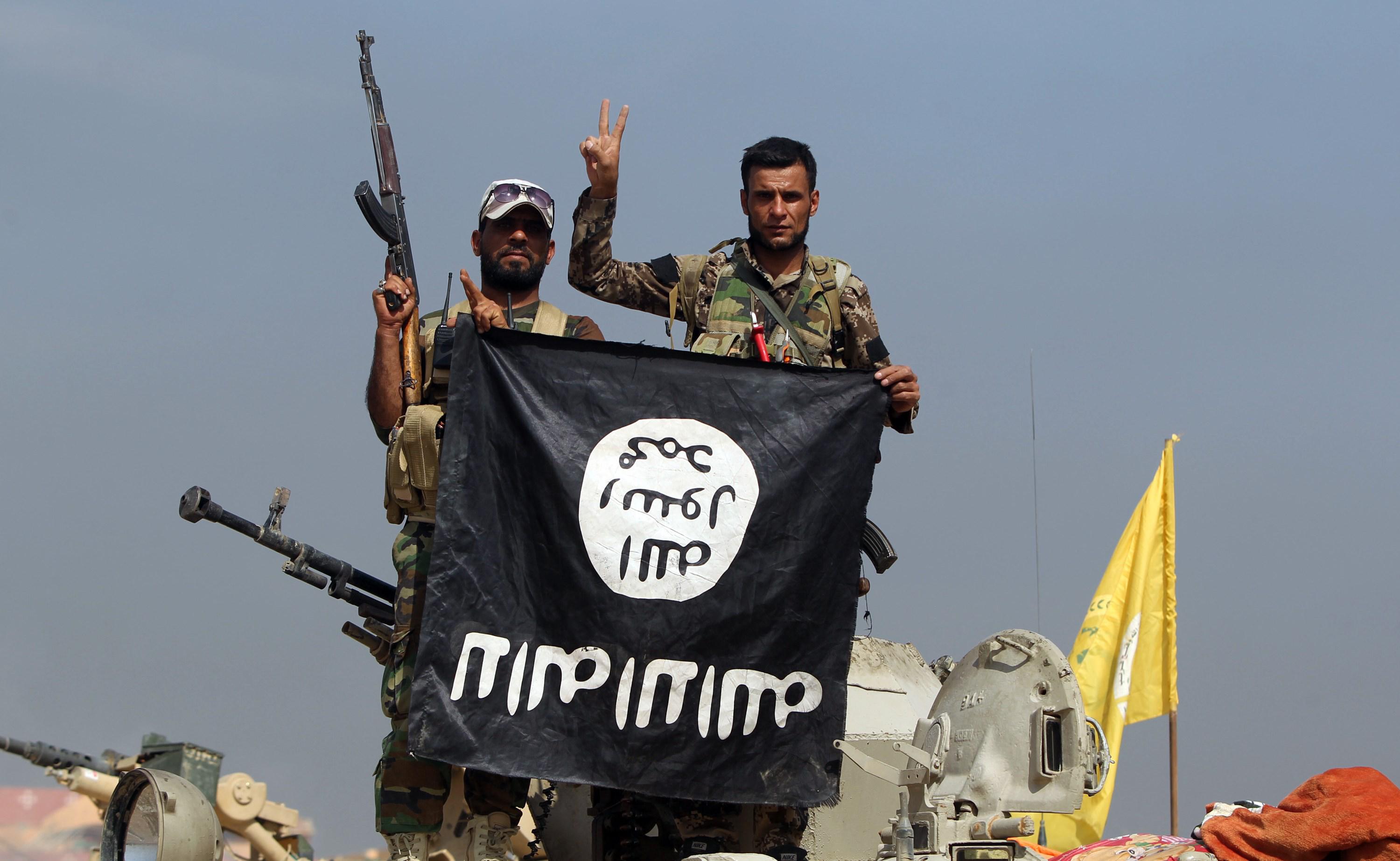The self-proclaimed Islamic State isn’t exactly entering 2016 on a high note. The U.S.-led coalition fighting against ISIS in Syria claimed on Wednesday to have killed 10 of the group’s senior leaders in December, including one operative closely linked to the planning of last month’s Paris attacks.
The announcement follows the Iraqi military’s retaking of the city of Ramadi from ISIS earlier this week after months of heavy fighting. Last weekend, a force of Syrian Kurds and Arab rebels backed by U.S. airstrikes captured a dam just 15 miles north of the ISIS capital of Raqqa, Syria, cutting off the group’s main supply route across the Euphrates river. While ISIS expanded its international reach this year with high-profile attacks by its supporters in France, Egypt, Lebanon, and the United States, it’s had a harder time back home. Even before this month’s events, ISIS had lost about 14 percent of the territory it held at the beginning of 2015, mainly in northern Syria and central Iraq.
ISIS leader Abu Bakr al-Baghdadi tried to put a brave face on things in a rare audio recording released last weekend, saying that airstrikes by Russia and the U.S-led coalition had only made the group stronger. But he also acknowledged that his “caliphate” was fighting against the “whole world” and would likely “face even greater misfortunes” in the future. He urged followers to be patient for final victory over ISIS’s many enemies.
ISIS’s enemies will likely face some misfortunes of their own in the coming year too, though. Skepticism is warranted when it comes to the possible efficacy of a new coalition of 34 Muslim countries pledging to fight ISIS and other terror groups that was announced by Saudi Arabia this month, particularly as it turns out not all of those countries were aware they were included.
Human rights groups have also accused Russia of killing nearly 800 civilians since it began airstrikes in Syria in late September. (The Kremlin has denied these claims.) In addition to the potential human tragedy, that news won’t help efforts to broker a cease-fire between the non-ISIS factions in the Syrian civil war.
As for the victory in Ramadi, it’s encouraging that the city was retaken by Iraqi government forces without the involvement of the controversial Iranian-backed Shiite militias. But as Nancy Youssef and Shane Harris of the Daily Beast note, it’s not a good sign that those troops needed five months of heavy fighting accompanied by punishing U.S. airstrikes to enter the city. With the larger battles for Mosul and eventually Raqqa looming, it seems like the only way for the anti-ISIS forces to recapture a city is to bomb it into rubble first.
The fact that ISIS is losing ground also doesn’t necessarily mean the world is safer from terrorism. In fact, experience with other hybrid terrorist-rebel groups shows that they often focus more on planning attacks abroad when they start to lose control over territory. But when it comes to combating ISIS’s stated goal of building and controlling a contiguous geographical “state,” things are certainly looking up.
